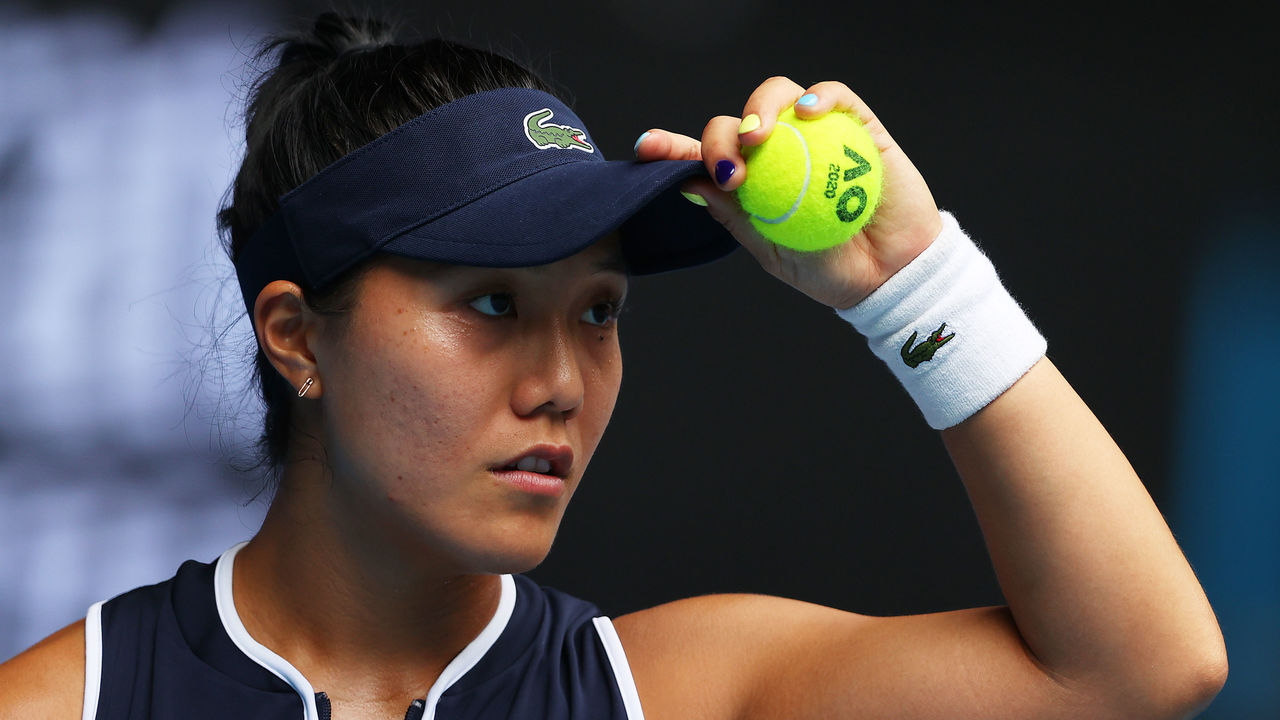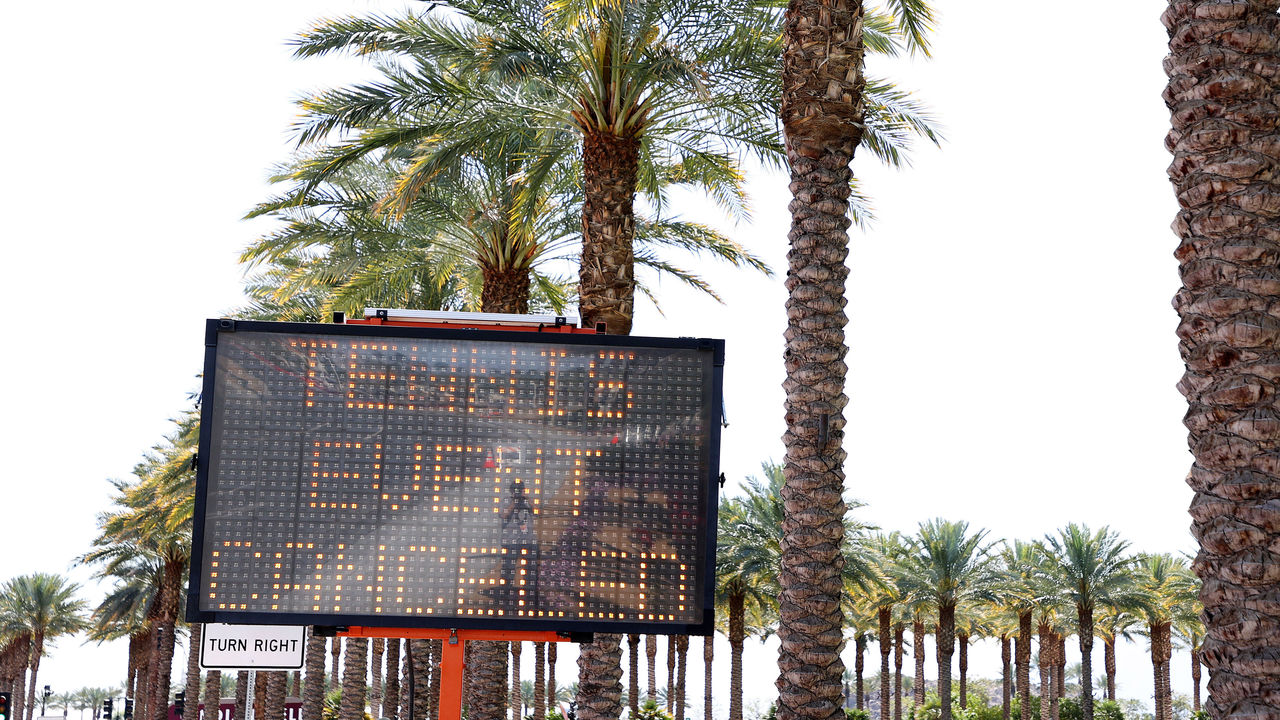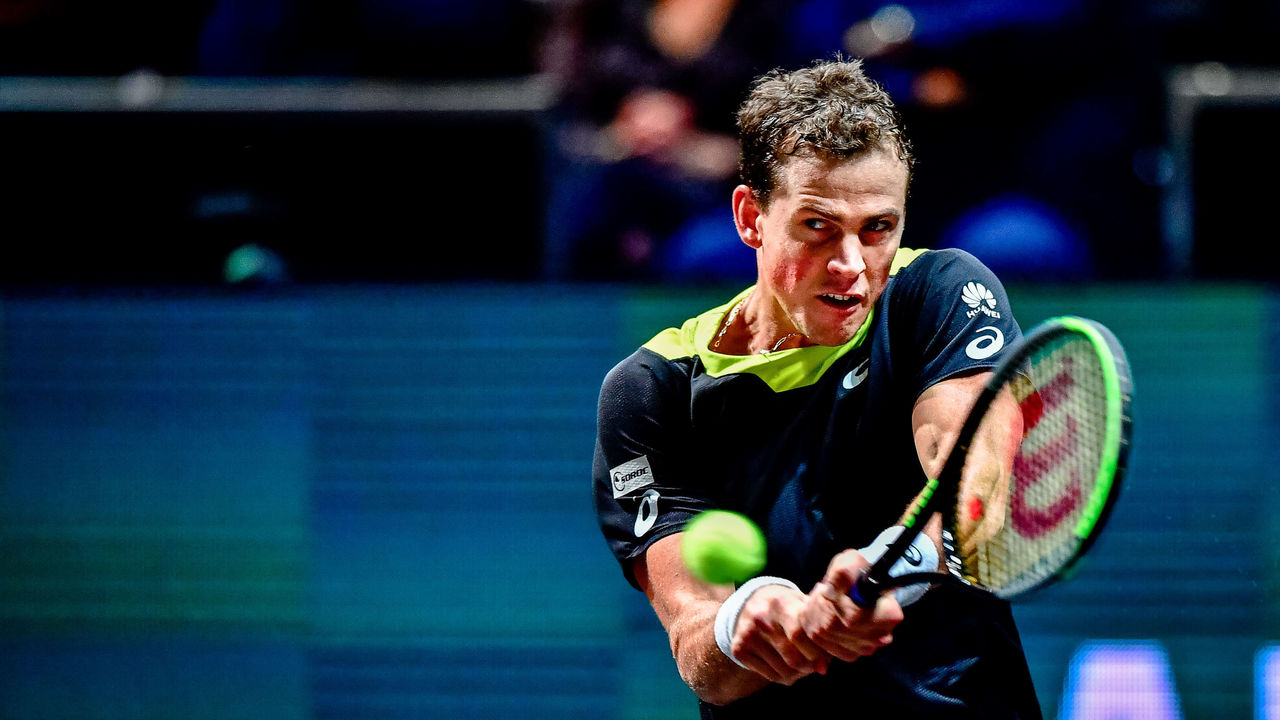'A lot of pressure on us': How coronavirus impacts tennis players' livelihoods
As the onset of a pandemic forced North American sports to a standstill, one small but meaningful break went Kristie Ahn's way.
Ahn is the world's 96th-ranked women's tennis player. On Thursday morning, she had planned to fly from California, home of the Indian Wells event hastily mothballed on the eve of qualifying out of coronavirus-induced caution, to Guadalajara, Mexico, the next lower-tier stop on the WTA tour. It remained unclear late Wednesday if the Mexican tournament would proceed as planned; momentum to scrap games and postpone seasons across the sporting spectrum hadn't yet hit breakneck speed.
Word finally reached Ahn that night that the Guadalajara event, too, was likely to be called off, another domino down in a tennis blackout set to extend through at least mid-April. As a member of the WTA Players' Council, it fell to her to carry out the scrambled task of notifying as many players as possible, affording them a modicum of notice to try to rejig their itineraries.
Before her 8 a.m. takeoff the following morning, Ahn had enough time to do the same. She managed to book a flight to New York to head home to New Jersey, searching for a respite from the frustration of the past several days - and for any degree of clarity on what comes next.

"When Indian Wells canceled, there was a lot of anger (from players on site): We're here, we're ready to play, why don't we play behind closed doors?" Ahn told theScore by phone Friday. That feeling abated over the week, replaced by a paramount focus on keeping players healthy - and by another significant practical concern.
"The tone has changed from that to, 'Oh, my God. When I am going to be able to work? How am I going to make money?'" Ahn said. "My priority is trying to help answer these questions for other players - while having them myself."
Even at the best of times, when mass gatherings don't have to be shuttered in a bid to contain the spread of infectious disease, tennis is an exceedingly hard sport in which to build a livelihood. Pros don't earn salaries as they do in team sports. Their competition income - and subsequent ability to foot large personal bills - hinges on their performance at tournaments, from workaday lower-purse meets like Guadalajara to select premier events like Indian Wells and the Miami Open, where five-figure paydays are guaranteed for anyone who makes the main draw.
The Grand Slam events, with their 128-person singles draws, offer even more significant minimum payouts for players:
| Event | Year | First-round loss earnings |
|---|---|---|
| Australian Open | 2020 | US$55‚649 (A$90‚000)* |
| French Open | 2019 | US$44‚429 (€40‚000) |
| Wimbledon | 2019 | US$49‚983 (€45‚000) |
| U.S. Open | 2019 | US$58‚000 |
| Indian Wells | 2019 | US$16‚425 |
| Miami | 2019 | US$16‚425 |
The nixing of Indian Wells last weekend portended the spate of cancellations that have followed, including that of the Miami Open, another of the WTA and ATP calendars' most prestigious annual events beyond the four majors. The ATP, like nearly all of North America's top sports leagues, announced Thursday it would suspend play until April 27 following the World Health Organization's declaration that the coronavirus has reached pandemic status.
"This is not a decision that was taken lightly, and it represents a great loss for our tournaments, players, and fans worldwide," ATP chairman Andrea Gaudenzi said in a statement announcing the suspension. "However, we believe this is the responsible action needed at this time in order to protect the health and safety of our players, staff, the wider tennis community, and general public health in the face of this global pandemic."

The WTA, too, cited its focus on health protection in announcing the cancelations of Miami later in March and the Charleston Open in early April. Right now, no women's tournament is set to be played until the Stuttgart Open starting April 20.
Such drastic measures - as with the cancellations of March Madness and European soccer matches and the postponements of the NBA, NHL, and MLB seasons - are prudent in the global effort to stem a virus that has infected more than 140,000 people worldwide. In tennis, though, a now-massive gap on the schedule also highlights the economic precarity most players on tour already face, a problem that's only bound to worsen the longer play is halted.
"If you're injured, if you're not playing, you're taking financial hits out the wazoo," Ahn said. "I know a lot of players are feeling very antsy about the (current) financial situation. It puts a lot of pressure on us. It's going to put a lot of pressure on us when we go back on court: 'I haven't made money in X amount of weeks, months. I need to perform well.'"
Even without knowing the specific opportunity cost incurred by any given player forced to sit idle for several weeks - lost earnings could range from tens of thousands to millions of dollars depending on performance - it's possible to get a sense of which players could be affected most severely. Those who excel on clay will bemoan the cancellation of Charleston. The main draws at Indian Wells and Miami, meanwhile, have room for 96 singles entrants, extending the spoils of participation to a larger field than usual.
Generally, it's the players sitting a notch or two below each tour's elite tiers - those who round out the main draws of ATP Masters 1000 and WTA Premier events - who bear the brunt of high-level tennis' financial inequity and instability. As Canadian player Vasek Pospisil wrote in an opinion piece for The Globe and Mail last summer, top-50 players are certainly able to rack up huge money, but that luxury doesn't extend far down the rankings.
"(O)utside of the top 100 players, when you add up the personal and staff expenses for a 30- to 35-week travel calendar, most players are either losing money or breaking even," Pospisil, a member of the ATP Players' Council, wrote at the time.

Pospisil, who intended to compete at Indian Wells, shared his dueling emotions about the event's cancellation in an interview with Tennis Channel this week: He acknowledged the gravity of the coronavirus outbreak while noting that being barred from play made for "a weird situation." No doubt that sensation will persist across the sport as the hiatus continues.
Ahn said she hopes the WTA will present a plan within the next week for paying players during the lull period and structuring the remainder of the year. On the latter front, she thinks players would be willing to play past the season's usual endpoint - as NBA and NHL athletes might do - if it means salvaging tournaments that can't be held on time.
Pressingly, Ahn said the players' council wants assurance from the WTA that players will be compensated while the tour is on hold. She admits it's a big request, given that canceled events face their own massive financial losses and that any such monies would have to be repurposed from some other budget line. But it's essential if play doesn't restart soon, she said, particularly for the many players who have to pay out of pocket for coaching and training - not to mention food and rent. (Neither the ATP nor the WTA responded to requests for comment on this subject.)
In all, Ahn said from New Jersey on Friday, it's been a taxing and difficult week, albeit one in service of a broadly important cause. On the WTA's eight-person players' council, whose members include 2017 US Open champion Sloane Stephens and finalist Madison Keys, Ahn's role is to represent women ranked in the hundreds. Not the marquee names, but the toilers and up-and-comers who comprise the majority of the tour.
"I think a lot of girls feel comfortable coming to me with issues, questions," Ahn said, "because they feel confident I'm going to not only relay these messages to the WTA, but also find solutions to them."
Heading into the weekend, Ahn's immediate plan was to spend the next couple of days at home, recovering from slight California jet lag and taking it easy as people around the country brush up on the practice of social distancing. She wonders if it's worthwhile to commute to New York next week to practice in Flushing, or if she ought to just stay in the house and use her own gym equipment to keep fit as best she can.
"There's clearly no rush anymore to get back on court," she said. "I have to talk with my coach and put together a plan: How important is getting on court right now, versus just literally trying not to catch the coronavirus?"
Nick Faris is a features writer at theScore.
HEADLINES
- Alcaraz advances in Monte Carlo to set up quarterfinal meeting with Fils
- Djokovic crashes out of Monte Carlo Masters with another loss to Tabilo
- Alcaraz starts clay-court season with win over Cerundolo in Monte Carlo
- Italian Open organizers can't wait to welcome Sinner back from doping ban
- Top-seeded Zverev loses to Berrettini in Monte Carlo Masters 2nd round